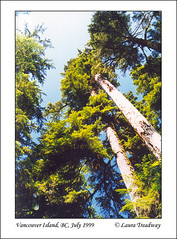 Over the course of the last few months I've come across the term, Anima Mundi, latin for World Soul. It peaked my curiosity and I decided to do a little research. Anima Mundi's meaning is very literal- this world, actually this universe, has a soul. It was first directly mentioned by Plato in his writing, Timeaus. Marcus Aurelius also spoke about it beautifully in his Meditations: “Constantly regard the universe as one living being, having one substance and one soul; ... and how all things act with one movement; and how all things are the cooperating causes of all things that exist; observe too the continuous spinning of the thread and the structure of the web.”
Over the course of the last few months I've come across the term, Anima Mundi, latin for World Soul. It peaked my curiosity and I decided to do a little research. Anima Mundi's meaning is very literal- this world, actually this universe, has a soul. It was first directly mentioned by Plato in his writing, Timeaus. Marcus Aurelius also spoke about it beautifully in his Meditations: “Constantly regard the universe as one living being, having one substance and one soul; ... and how all things act with one movement; and how all things are the cooperating causes of all things that exist; observe too the continuous spinning of the thread and the structure of the web.”It seems the Anima Mundi is just one way of identifying an all-encompassing non-material form. The concept of the Anima Mundi seems very similar to pagan beliefs of the Great Mother, the Spirit of Creation, or the Divine feminine counterpart. There are theistic faiths that believe the universe is synonymous with an immanent God (pantheism, pan=all and theo=god). Some traditions of Christianity have been pantheistic. Panpsychistic beliefs contend that the whole universe possesses a mind or consciousness. Animism, common among folk faiths, is the belief that every thing in the universe possesses a soul.
A Sufi teacher, Llywellan Vaughn-Lee, explains that the Anima Mundi is the Macrocosm of the Universe and the Individual is the Microcosm. The spark of life and light in the Anima Mundi, is also the spark in us and in all things. He teaches that when the individual nourishes it's own soul, it also nourishes the World Soul.
I believe in the Anima Mundi. Whether it is God, the Divine Mother, or a Collective Consciousness, it doesn't really matter to me. What matters to me is that there is something that contains everything. A whole, more than the sum of its parts. I don't believe that anything, anything at all in this world is isolated from anything else. Everything is part of a great whole.
What disturbs me is that for quite sometime we humans (especially us Western ones) are trying very hard to prove that we are isolated. We do not tolerate being subject to the consequences of someone else's actions. We've built physical, mental and spiritual barriers around us everywhere we go to prove that we are invulnerable and not responsible for anything other than our individual selves.

This is why I love food. Not only is it pleasurable and satisfying, but it is a constant reminder that we are connected. And we can't run away from it, we have to eat! I believe, now more than ever, gardening and eating are healing acts because they can bring us back, over and over to the basic truth that we are part of the universal family. And when you choose to be open to this truth, you can no longer look at a carrot and just see a carrot. You see the hands that planted it. The soil and microbes that nourished it. The sun and rain that nurtured it. And then if you really look, in the carrot you can see yourself. It's the spark. The same spark in everything. The spark of the World Soul.
(Orginally posted on growfoodfeedspirit.blogspot.com)
 I will be tracking my
I will be tracking my 